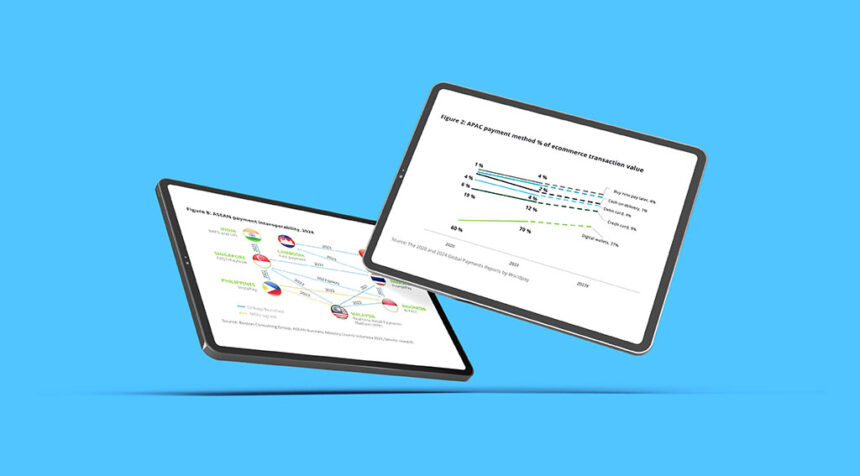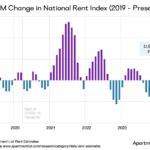New report from Deloitte Digging deeper We’ve explored the latest developments in the cross-border payments space in Asia Pacific (APAC) and identified four key trends that are changing the landscape and creating significant opportunities for retailers. These trends reflect the growing integration of digital payment systems, the rise of digital wallet solutions, and advancements in payments infrastructure.
The Digital Payments Revolution
The first trend outlined in the report is the digital payments revolution. Digital payments will become mainstream in payments, accounting for half of global transaction value by 2023, with consumer spend across channels reaching a total of US$13.9 trillion. This trend is driven by Asia Pacific, which accounts for almost two-thirds of global spend, totaling US$9.8 trillion. The region has the highest digital wallet penetration of all regions.

Digital wallets have emerged as the leading and fastest-growing payment method in Asia Pacific, with a predicted compound annual growth rate (CAGR) of 13% through 2027. The growing popularity of digital wallets is driving continued financial innovation, including the rise of pay later (BNPL). By 2023, BNPL agreements will account for 4% of e-commerce transaction value, a significant increase from just 1% in 2020.

In 2023, digital wallets became the leading payment method for e-commerce in Asia Pacific, accounting for 70% of e-commerce transaction value. Countries such as China, India, Indonesia, Philippines and Vietnam led the adoption of digital wallets in the region. For point-of-sale (POS) transactions, digital wallets became the leading payment method in China and India in 2023. However, cash remained the top POS payment method in six Asia Pacific markets: Indonesia, Japan, Malaysia, Philippines, Thailand and Vietnam.

Payments Interoperability
The growth of digital payment innovation in Asia Pacific highlights the need for connectivity and interoperability in both online and offline transactions. In the region, several countries Introduced Through cross-border QR code payment collaboration, we will create a unique interoperable ecosystem within ASEAN.

Additionally, intercontinental interoperability programs have been introduced. Project NexusFor example, a project led by the Bank for International Settlements (BIS) aims to create a blueprint for connecting countries’ instant payment systems to enable seamless cross-border payments.
Public-private partnerships also play a key role in developing and facilitating cross-border payments. For example, national QR payment schemes in countries such as Singapore, Malaysia, Cambodia, Sri Lanka and South Korea have partnered with Alipay+ to bridge the cross-border gap, allowing tourists to use their familiar payment methods while abroad.
Digital Ecosystem
Another trend highlighted by Deloitte is the evolution of digital wallets into multi-function platforms known as “super apps,” designed to address changing consumer behavior. For example, Malaysia’s Touch’N Go was initially used to pay tolls, but is now used to make payments for travel and transportation. expansion It entered the e-wallet market in 2018 and has since become Malaysia’s most popular e-wallet brand. In China, super apps Alipay and WeChat Pay have emerged as global leaders in digital wallets.
The super app approach is currently reshaping retail and commerce. As consumers increasingly shop across multiple channels – in-store, online, and through social media – super apps are helping to streamline these interactions and make the shopping experience more seamless. As a result, retail brands are increasingly adopting omnichannel strategies to drive customer loyalty and improve the shopping experience.
For example, in Indonesia, the Mandiri Bank super app, “Livin'” by MandiriIt offers a wide range of banking services, including point-of-sale services, inventory management and payment processing. By the end of 2023, Livin’ by Mandiri will have 22.8 million registered users, making it the fastest-growing mobile app in the country.
Similarly, travel super app AirAsia MOVE Release Founded in 2020, AirAsia offers services such as flight and hotel bookings, ride-hailing, food and beverage and travel insurance. It offers a comprehensive digital ecosystem, integrating with Capital A’s financial services such as BigPay and leveraging a robust loyalty programme called AirAsia Rewards.
Advancing financial inclusion and sustainability goals
Digital technology is also crucial in promoting financial inclusion, enabling the delivery of reliable, efficient and cost-effective services to unbanked people and businesses. This is particularly important in Southeast Asia, where approximately 225 million people remain unbanked and 39 million micro, small and medium-sized enterprises (MSMEs) face significant financing gaps. According to to the United Nations Capital Development Fund;
Digital inclusion can also help small businesses achieve sustainability. Program SiriusFor example, there is a focus on promoting sustainable practices and ensuring underserved communities have access to sustainable financing. The program is supported by industry partners such as Ant International, Gprnt (an initiative by the Monetary Authority of Singapore), the International Finance Corporation and fintech leaders in the Asia-Pacific region.
Additionally, many banks and e-wallet apps offer carbon offset programs to help reduce carbon emissions. For example, in the Philippines, financial super app GCash Release In 2019, he launched GForest, an eco-friendly platform that allows users to plant digital and physical trees by making digital transactions using GCash. The platform has quickly gained popularity, Boast As of December 2022, the number of registered users has reached 12 million, collectively offsetting more than 30.5 billion grams of carbon dioxide emissions.
Featured Image Credit: Free Pick








